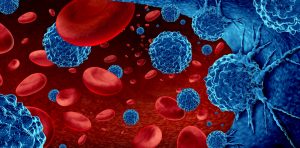
FDA approves first diagnostic tool to target triple-negative breast cancer patients
pharmafile | March 11, 2019 | News story | Sales and Marketing | Cancer, Roche, Ventana, breast cancer, pharma
Roche’s Ventana PD-L1 Assay has become the first FDA-approved companion diagnostic for the identification of patients with triple-negative breast cancer (TNBC) who are eligible for treatment with the company’s immunotherapy combo of Tecentriq (atezolizumab) plus Abraxane chemotherapy.
The technology works via the specific staining of tumour cells and immune cells to determine which patients will benefit most from Roche’s combo treatment. Triple-negative breast cancer affects around 300,000 new patients around the world each year; the disease is characterised by an absence of expression of the three most common breast cancer-associated proteins – oestrogen receptor, progesterone receptor and HER2/neu – on the tumour, while PD-L1 is primarily expressed on tumour-infiltrating immune cells, rather than on the tumour cells themselves.
“Triple-negative breast cancer is an aggressive disease that, until now, has had limited treatment options,” commented Michael Heuer, CEO of Roche Diagnostics. “This assay plays a pivotal role in helping physicians identify patients that can benefit from Tecentriq therapy, providing better patient care. At Roche, we build on our capacity to research both targeted medicines and companion diagnostics under one roof, so we can provide the right treatment to the right patient at the right time.”
Matt Fellows
Related Content

Roche’s Alecensa approved by FDA as lung cancer treatment
Roche has announced that the US Food and Drug Administration (FDA) has approved Alecensa (alectinib) …

Genentech’s Columbi meets primary endpoint in phase 3 trial for lymphoma treatment
Genentech, part of the Roche Group, has announced that its phase 3 STARGLO trial has …

Geneos Therapeutics shares data from phase 1/2 trial for cancer vaccine
Geneos Therapeutics has announced that it has published positive safety, immunogenicity and efficacy data from …








